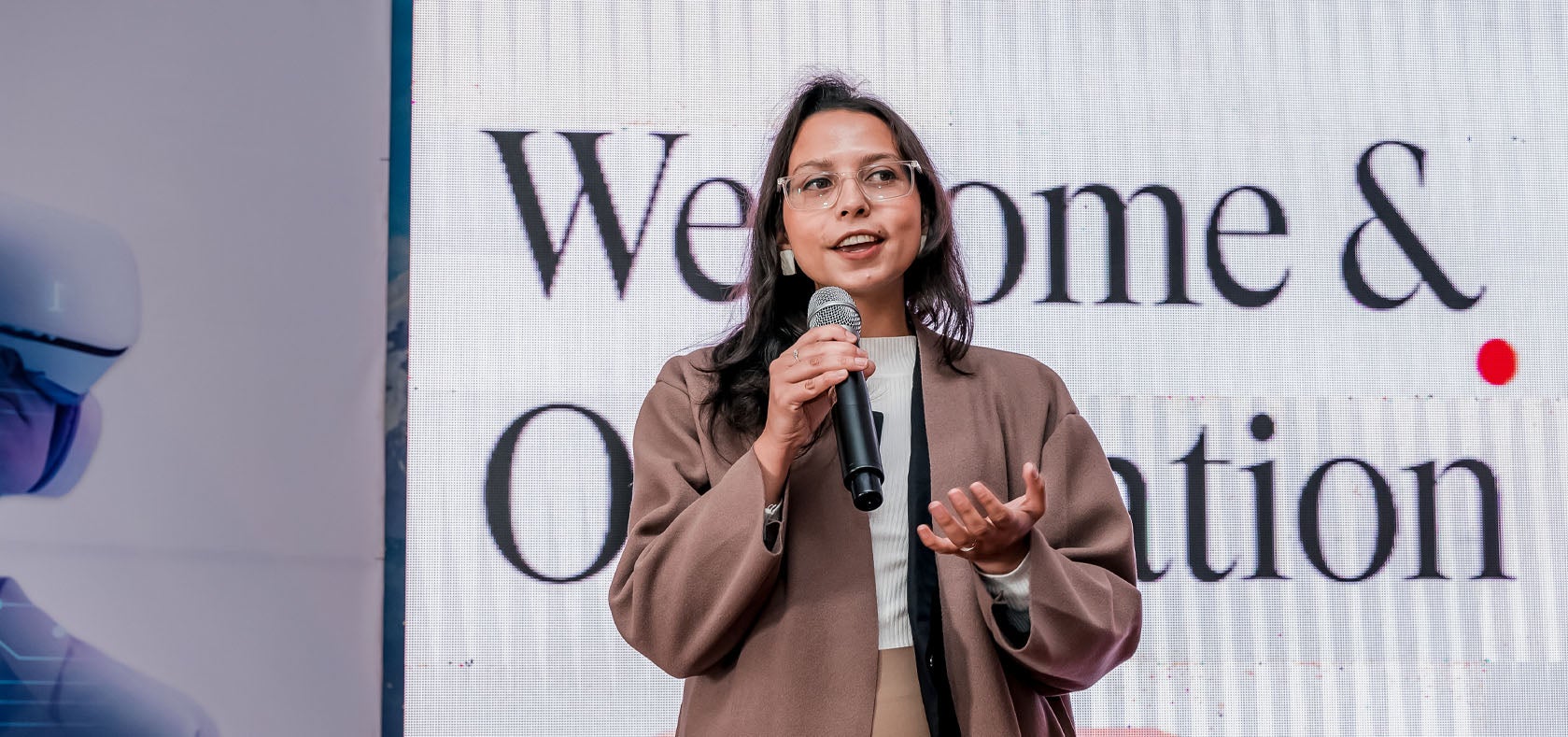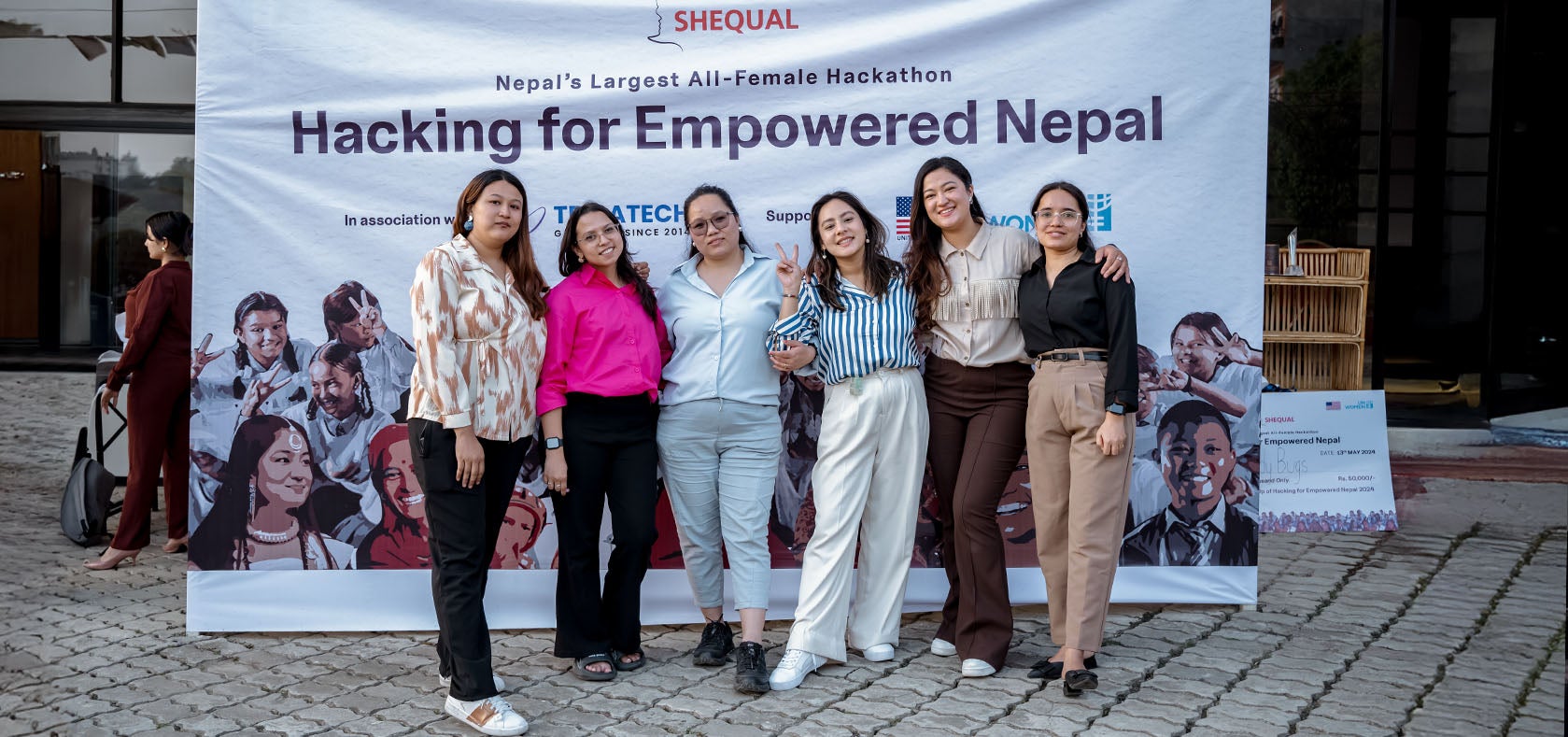Take Five with Astha Sharma: “We can stop telling girls to ‘catch up’, and start redesigning tech spaces where they start ahead”
Date:
Interviewer: Sangharsha Panta

Astha Sharma is Co-founder and Managing Director of Shequal Foundation based in Lalitpur, central Nepal. The nonprofit works to break barriers for women and girls in the fields of science, technology, engineering and mathematics (STEM) and information communication and technology (ICT). UN Woman began collaborating with Shequal Foundation last year, at its all-female hackathon. Sharma was interviewed ahead of Girls in ICT Day on 24 April.
What inspired you to champion this cause?
Growing up with a mother working in STEM, I was naturally drawn to challenge gender norms from an early age. But I consistently found myself being the only woman in rooms full of men, from choosing science as my subject in school to my current corporate journey.
This experience sparked my determination to create change.
The journey culminated in co-founding the Shequal Foundation with Melisha Ghimire, who shared similar experiences of gender bias. What continues to drive me is witnessing the tangible impact of our work, particularly in rural regions where gender disparities are most pronounced.
What makes Shequal’s all-female hackathon so special?
Before this initiative, seeing women at hackathons — let alone all-women teams — was a rarity in Nepal.
That’s exactly why this hackathon was born — not just to offer a platform, but to create an entirely different environment: one that’s safe, encouraging, and unapologetically built for women. We've seen girls walk in shy, uncertain, and hesitant — and walk out proud, energized and loudly confident. Many of them go on to join other hackathons, this time forming their own all-female teams.
A group of girls … traveled all the way from Sudurpaschim Province. They hadn’t worked together online before, so I showed them something as simple as how to use Google Docs collaboratively. The excitement on their faces, like they’d just discovered a super power, was unforgettable.
What does the partnership with UN Women mean for you?

Last year, the first collaboration of UN Women and Shequal brought visibility to the often-overlooked realities that keep women out of tech, especially the unpaid care responsibilities that silently shape their access to opportunities.
This year, we’re incredibly excited to align even more closely with the theme of women’s economic empowerment, particularly through the lens of care work. For women, especially in Nepal, the burden of unpaid care work directly affects their ability to pursue education, employment, and leadership in tech. Tech is not just about access — it’s about designing systems that acknowledge and support the daily lives of women, especially caregivers.
What is your message to girls looking to break into the field?
Every year, we see a new wave of girls curious about artificial intelligence, cybersecurity, robotics and design, and they’re hungry to learn, build and lead. We can stop telling girls to “catch up”, and start redesigning tech spaces where they start ahead.
To every girl looking to break into tech: You don’t have to wait to be invited. Be bold enough to learn out loud, to ask questions, to take up digital space — even if you’re the only one like you in the room.
And to the rest of us? Let’s make sure she’s not the only one for long.
How can people join your cause?
We invite individuals, companies and institutions to join us — mentor a young girl innovator, co-create a learning platform, support our hackathons and boot camps, and invest in long-term partnerships that foster inclusive innovation.